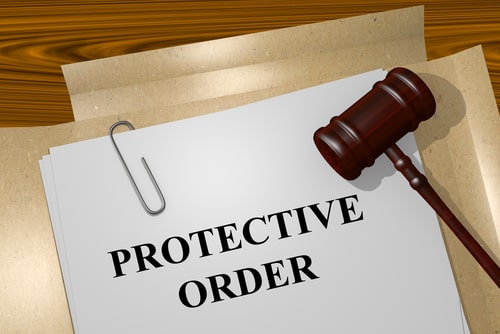Understanding Orders of Protection During and After Divorce in Illinois
 Orders of protection (OP) are often necessary to protect sufferers of domestic abuse during and after divorce in Illinois. Here is a more in-depth look at the process for obtaining and enforcing orders of protection in the state and how a divorce lawyer can help:
Orders of protection (OP) are often necessary to protect sufferers of domestic abuse during and after divorce in Illinois. Here is a more in-depth look at the process for obtaining and enforcing orders of protection in the state and how a divorce lawyer can help:
The Purpose and Benefits of Orders of Protection
Orders of protection aim to prevent further harm by legally prohibiting the abuser from contacting, harassing, approaching, or abusing the sufferer. They provide crucial legal protection when there is a documented threat of physical abuse, emotional abuse, harassment, intimidation, or interference with personal liberty.
OPs can dictate no contact with the victim, require the abuser to temporarily vacate a shared home, and grant temporary custody of children to the petitioner. By imposing restraining conditions, OPs can reduce risk and prevent the escalation of abuse during the vulnerable period of divorce.
Qualifying for an Order of Protection in Illinois
Under the Illinois Domestic Violence Act, to qualify for an OP, the petitioner must establish they are a victim of:
- Physical abuse: causing bodily harm or unwanted sexual activity
- Harassment: a course of conduct causing distress
- Intimidation: placing someone in fear of harm through threats
- Interference with personal liberty: restricting freedom of movement
- Willful deprivation: denying access to assets, food, and healthcare
The abuse does not need to cause physical harm. Threats, intimidation, emotional abuse, and harassment are sufficient grounds if they cause distress and the petitioner fears for their safety.
The Process for Obtaining Temporary and Final OPs
Emergency temporary OPs can be issued immediately by a judge if they agree there is an urgent threat based on the petition. Temporary emergency OPs last until the court hearing for a final plenary OP, typically within 14–21 days.
At the plenary hearing, the judge will decide whether to make the OP permanent. The petitioner must present documentation and testimony to prove their claims. Final plenary OPs normally last 1–2 years and can be renewed.
Enforcing Your Illinois OP
If the abuser violates the conditions of the order, the petitioner should immediately call the police to file an OP violation report and retain documentation. The abuser can face criminal charges for violating an OP.
Inform your divorce attorney, who can file a contempt of court motion regarding violations. Do not hesitate to enforce your Illinois order of protection strictly - it is there to protect you.
Contact a Geneva, IL Divorce Attorney
Divorce can be hard enough, and when you have to add an order of protection, it can seem more daunting. You do not have to go through the process alone. Working with an Illinois divorce lawyer can help you know which step to take next. The experienced Kane County, IL divorce lawyers at Serrano Hanson & Hurtado, LLC can help. Call 630-844-8781 today so you can have help on your side.
Source: https://www.ilga.gov/legislation/ilcs/documents/075000600K214.htm
https://www.ilga.gov/legislation/ilcs/ilcs5.asp?ActID=2100


 630-844-8781
630-844-8781



